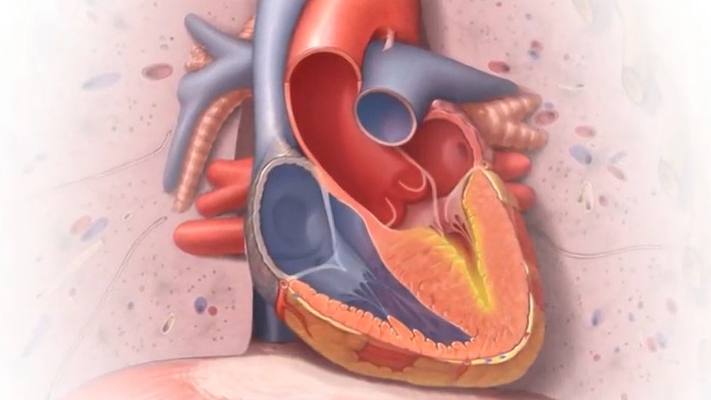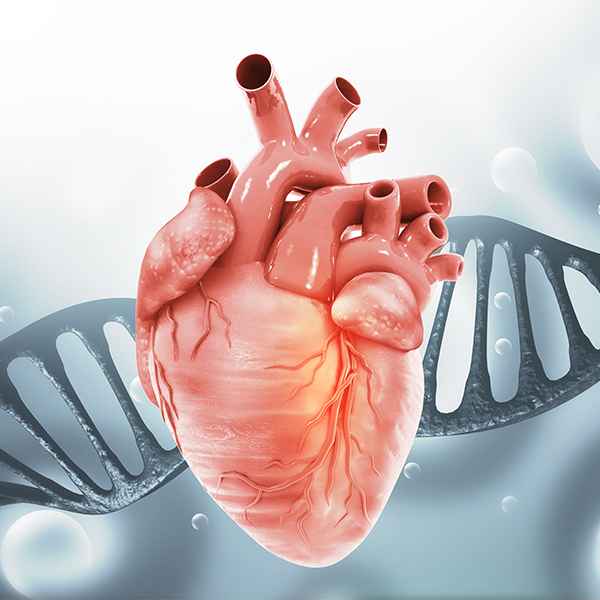-
Mayo Clinic Q & A: What is hypertrophic cardiomyopathy?

DEAR MAYO CLINIC: I've heard from some of my relatives that heart disease runs in our family, so I've been reading a lot about different conditions. I can barely pronounce it, but what is hypertrophic cardiomyopathy?
ANSWER: It is a mouthful. Let's break it down a little. Hypertrophic cardiomyopathy (HCM) is a condition where the heart (cardio) muscle (myopathy) becomes thickened (hypertrophied). HCM is the most common type of genetic cardiomyopathy. Patients are born with a gene that makes the heart muscle thicker than it should be.
HCM can be a silent disease, and some people live their whole lives not knowing they have it. We sometimes find it by chance during imaging or an autopsy for a separate reason. However, some patients, at some point in their life, can start experiencing increased heart rhythm issues, which puts these patients at risk of sudden death. In many cases, the first sign of HCM can be sudden cardiac death. Making the right diagnosis at the right time is critical in this condition.
HCM also can create stiffness in the heart muscles and block the outflow of blood from the heart. These patients come to us with a variety of symptoms, including shortness of breath, chest pain, fainting or dizziness. It is important to seek medical attention when you have any of these symptoms. If a young athlete passes out during exercise, for example, it's important that they get checked by getting an electrocardiogram (ECG or EKG) and an echocardiogram.
HCM is not as rare as people think. Data suggests that 1 in 200 to 500 people worldwide have HCM. The problem is that it often goes undiagnosed or missed. Right now, in the U.S., we believe we've only diagnosed 1 out of 7 of the people who have HCM. We are trying to increase awareness in the community about this disease and make sure that healthcare teams are well educated so they don't miss the diagnosis when they look at the imaging of these patients.
It's important to remember that just because you carry the gene doesn't mean you will develop HCM. Some people show signs of HCM at a younger age, in their teens or 20s, while others can show signs of the disease later in life, into their 50s. Knowing your family history and paying close attention to whether anybody in the family was told they have a thick heart muscle or if a family member suddenly died at a young age are the kinds of questions that can lead to clues if you have a genetic factor for HCM.
At Mayo Clinic, we offer a genetic test for those suspected of having HCM and to family members of affected patients. We mail a kit to the patient's home, and they do a swab from inside the mouth and send it back. Within two weeks, we get the results back and can either confirm the diagnosis or find out if they have other diseases that may look like HCM. Genetic testing can be helpful in ruling out these other conditions.
My hope is for people to think about it when they see patients with abnormal heart sounds or have symptoms that might suggest this condition. When treating patients, we should always ask, "Can this be hypertrophic cardiomyopathy?" The eyes won't see what the mind doesn't know, so it's always good to have it at the back of your mind. You really can save people's lives by diagnosing it early and referring them in a timely fashion. We have a lot of new treatments that can help these patients surgically or medically, so making the right diagnosis will improve patient survival and their quality of life. — Said Alsidawi, M.D., Cardiovascular Medicine, Mayo Clinic
Related Articles







